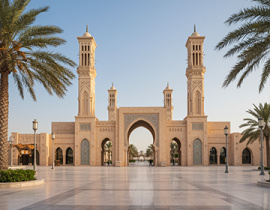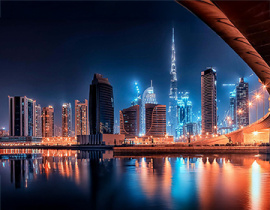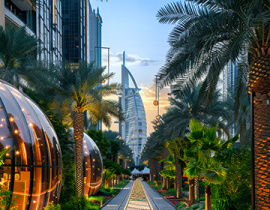- Home
- Blog
- Area Guide
- 9 Dubai Myths You Probably Believe
9 Dubai Myths You Probably Believe
Dubai’s reputation reached a point where everyone wonders about the daily life there. However, this fame comes with certain misconceptions and assumptions. As social media posts and luxury-focused news portray a utopian landscape, we may form opinions without seeing the full picture.
In reality, life in Dubai is often very different from the common stereotypes. This page aims to highlight the most widespread myths about Dubai and provide a local perspective on the truth behind them.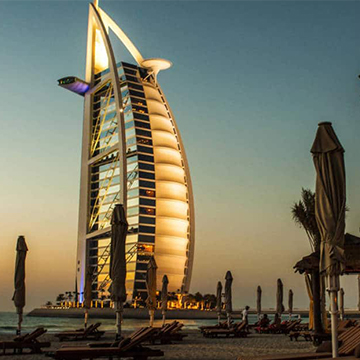
Myths & Facts About Life in Dubai
Here are some myths about daily life in Dubai and the truth behind them:
Myth 1: Dubai is for high-net-worth individuals only.
Fact: Dubai is not a very expensive city to live in. In fact, the cost of living in Dubai is comparable to European cities like Amsterdam, Lisbon, and Rotterdam. On average, living costs are around USD 1,110 for a single person and USD 4,000 for a family of four, excluding rent. With rent, living expenses in Dubai for a single person range from USD 2.600 and USD 2.800.
Housing in Dubai is also more accessible than many people think, as developers offer attractive payment plans that include low down payments, long installments, and minimal interest rates.
Daily essentials also have reasonable prices. Groceries, dining out, and food are not expensive in Dubai. For example, a standard meal in a casual restaurant typically costs around USD 10. A dinner for two costs around USD 80.
Myth 2: There is no tax in Dubai.
Fact: Dubai indeed has a more attractive tax policy than most countries. However, there are still some taxes. Note that you become a tax resident of Dubai if you are staying for 183 days in a year. If yes, you have the following tax liabilities:
- Income and Capital Gains Tax: 0%
- Annual Property Tax: 0%
- Value Added Tax (VAT): 5%
- Corporate Tax: 9% if the taxable amount exceeds AED 375,000, otherwise 0%
- Municipal Tax: 5% of the annual yield (for homeowners)
Myth 3: Renting is always expensive in Dubai.
Fact: While luxury apartments in central Dubai can be pricey, rent in Dubai is not expensive. Depending on the location and amenities, one- to three-bedroom apartments range from USD 1,500 to USD 4,500 per month.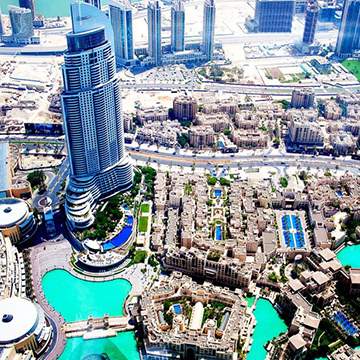
Neighborhoods such as Jumeirah Village Circle (JVC), International City, Dubai Silicon Oasis, and Al Barsha offer reasonable rents without sacrificing comfort or convenience. On top of that, flexible rental contracts and shared housing allow residents at different income levels to find suitable homes in Dubai.
Myth 4: Dubai doesn’t have pet-friendly homes.
Fact: On the contrary, many residential developments in Dubai welcome pets. Several communities even provide on-site amenities such as pet-walking areas, dog parks, and pet-friendly green spaces. Neighborhoods like Jumeirah Village Circle (JVC) and Dubai Sports City also feature nearby veterinary clinics and public parks.
Myth 5: I must speak Arabic to live in Dubai.
Fact: Only 15% of Dubai is made up of locals. Thanks to the large expat community, languages such as English, Russian, Hindi, Urdu, and French are widespread. This makes communication in streets, markets, hospitals, and restaurants easy for expats.
Arabic is not mandatory in Dubai schools either. While public schools generally have Arabic programs, international schools in Dubai teach in English, German, French, or other languages.
Myth 6: Getting a work visa requires employment at a UAE company.
Fact: Thanks to the Emirates' Green Visa program, it is possible to work in Dubai without obtaining a work visa. Valid for 5 years, this visa allows freelancers, self-employed individuals, and skilled employees to support themselves.
Myth 7: Dubai is only good for holidays.
Fact: Dubai might be a wonderful holiday destination, but it’s definitely more than that. The whole city is filled with social amenities, high-quality hospitals, international schools, sports facilities, and shopping centers. From leisure to business opportunities, every aspect of daily life in Dubai offers the highest standards.
Myth 8: There is no social freedom in Dubai.
Fact: The UAE is officially a Muslim country. However, mutual respect builds the foundation of social norms. Your lifestyle, clothing, and personal choices are welcome as long as you show understanding for other cultures.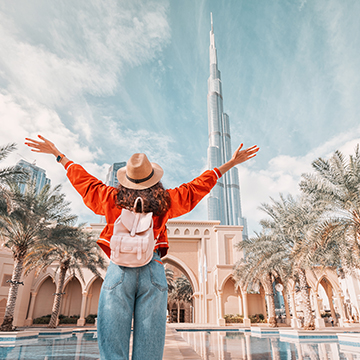
Alcohol is not banned in Dubai. Yet, there are designated restaurants, bars, and hotel lounges that serve alcohol. You must obtain a license to consume alcohol legally.
You can eat in public places during Ramadan. There is a solid religious freedom in Dubai. There is no law against eating or drinking during the fasting period, though some expats prefer avoiding it for common courtesy.
Clothing regulations are relaxed. You should wear modest attire in public places, but tourist areas tolerate casual wear, including shorts and sleeveless tops.
Visit our related page to learn about etiquette and restrictions in Dubai.
Myth 9: It is difficult to become a resident of Dubai.
Fact: Becoming a resident of Dubai is much easier than many people assume. There are several ways to obtain residency in Dubai. These include the Golden Visa, Digital Nomad Visa, Employment Visa, and Student Visa.
In addition, the UAE has recently introduced new visa categories for job exploration, remote work, and environmental projects. With these diverse options, obtaining a Dubai residence is straightforward for professionals, students, investors, and entrepreneurs.
Final Notes
Dubai stands out with its luxurious lifestyle, skyscrapers, and high quality of life. However, contrary to popular belief, living in Dubai is not a difficult experience. People from different income groups can buy a home, obtain residency, and enjoy a comfortable life in Dubai.
Still looking for a place to call home? See our comparison of the top five emirates.





